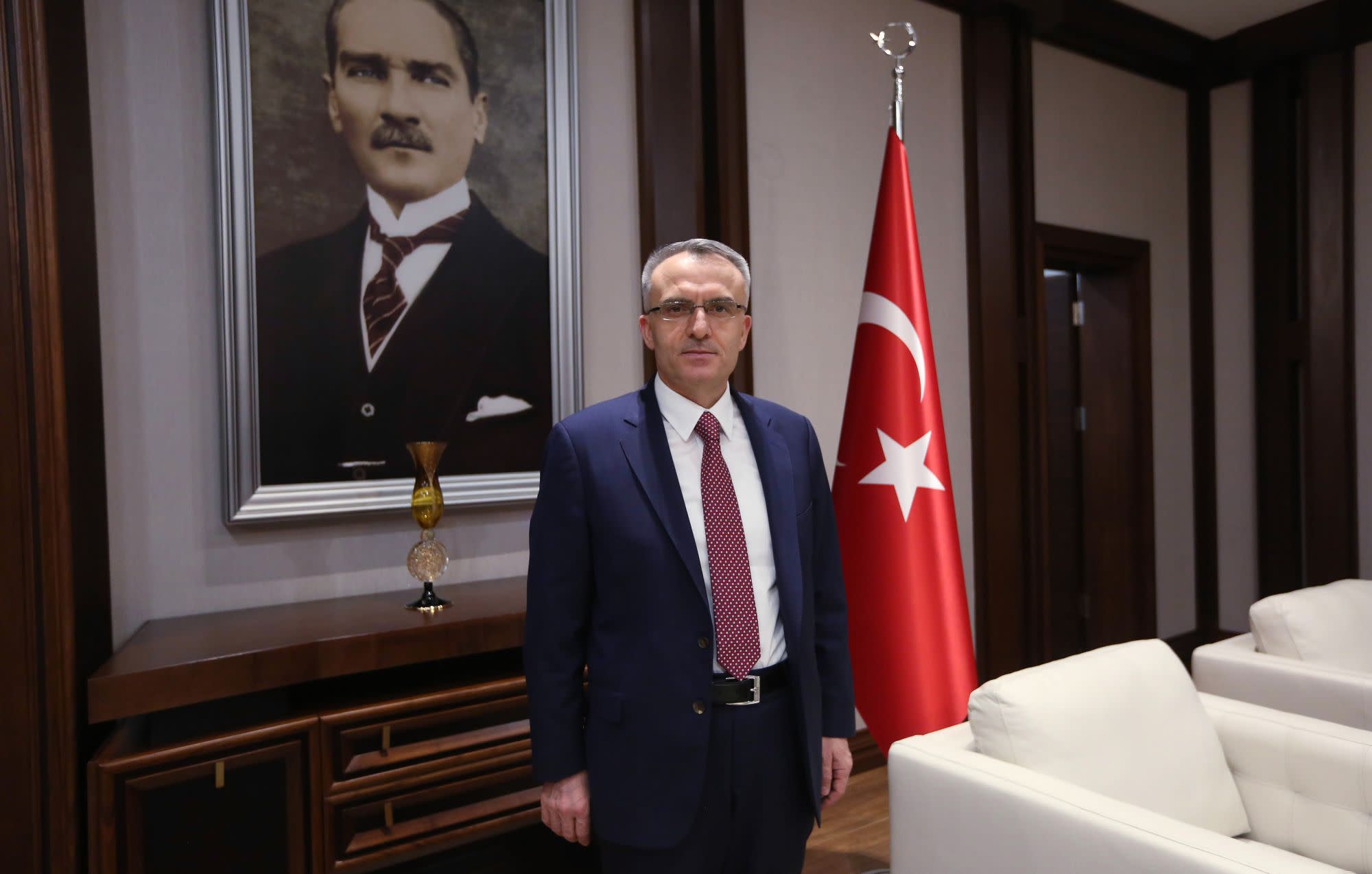(Bloomberg) – The Turkish lira has plunged up to 15% after President Recep Tayyip Erdogan’s shocking decision to replace the country’s central bank chief.
It was quoted at 8.2247 at 10:01 am Sydney time, after previously weakening to 8.4707 per dollar. That has erased more than four months of gains since now ex-governor Naci Agbal was appointed in November and put the lira just a few percentage points from a record low reached earlier that month.
Erdogan’s decision to fire Agbal, which had sought to restore the central bank’s credibility, is a blow to investor confidence and raises concerns that the country will embark again on a path of very low interest rates. The initial reaction exceeded some analysts’ estimates and marks a rapid reversal of investor enthusiasm for Turkish markets. That seemingly sated appetite has helped make the lira the best carry trade currency this year, with money managers applauding Agbal’s move to raise interest rates and efforts to control inflation.
“The Bulls’ optimism was based on the fact that the CBRT could keep rates high for some time and, after last Thursday, that looked very promising,” said Henrik Gullberg of Coex Partners Ltd., who has seen the lira to appreciate in excess of 6.90 per dollar. “This is ruined now; it will be difficult to find lire bulls, ”he said, adding that the currency may now return to levels when Agbal was appointed.
New Commitment
Agbal’s replacement, Sahap Kavcioglu, promised on Sunday to use monetary policy tools effectively to provide permanent price stability. He also said that the bank’s rate-setting meetings will take place according to the schedule.
A rush to sell the currency with little liquidity while negotiations were underway in Asia has overwhelmed support for state banks’ lira, according to a foreign exchange broker familiar with the transactions, who asked not to be identified because the person is not authorized to speak publicly.
“I expect massive intervention by the state bank in the short term to maintain a line on the lira,” said Timothy Ash, strategist at BlueBay Asset Management in London, adding that he is still unsure of where the line will be drawn. “The new governor will depend on the use of the generosity of the reserve that the former governor left to facilitate his entry into office.”
Erdogan Ousts head of the central bank, installs interest rate ally
Any weakness in the lira could increase inflationary pressures on the economy and erode Turkey’s real rate, currently the highest in emerging markets after Egypt’s.
The lira had strengthened by around 18% under Agbal’s supervision, when he ended a complicated financing structure and pledged to guarantee price stability. Its abrupt removal came in the wake of a 200-bp interest rate hike on Thursday, double what was expected in a Bloomberg survey amid accelerating inflation.
What Bloomberg’s Economy Says
“The blow to the central bank’s credibility and independence cannot be overstated. Erdogan struck the institution with interventions that repeatedly backfired. The financial markets were willing to give Agbal a chance, his successor will have a hard time building that trust again. “
–Ziad Daoud, chief economist for emerging markets. For complete REACT, click here
While Turkey’s high nominal rates are bait for income hunters, its volatile inflation and the perception that the central bank’s policy has been too lax for prevailing economic conditions have made the lira one of the most volatile currencies in the world.
“We must conclude, for the time being, that Kavcioglu will have a mission to reduce and keep rates as low as possible,” said Cristian Maggio, head of emerging markets at TD Securities in London. “If that hypothesis proves to be true, not only will we see a more flexible policy scenario in Turkey in the coming months, but we will also likely experience a return to policy management through unorthodox measures.”
Last year, Turkish banks spent more than $ 100 billion of the country’s foreign reserves to support the sinking of the currency, according to a report by Goldman Sachs Group Inc. This sparked calls from the Turkish opposition for a judicial investigation of official reserves from the country.
By comparison, foreign investors bought a net worth of $ 4.7 billion in Turkish stocks and bonds in the months following Agbal’s appointment. International flows to Turkey through swaps were about $ 14 billion during the period, said Istanbul-based economist Haluk Burumcekci.
Among those who may find themselves on the wrong side of the trade are Japanese retail investors. Long positions from private individuals in the yen stood at 263,585 contracts on Friday. They have risen about 9% since the beginning of the year.
“We will never know how successful Agbal’s approach could have been, but the early signs were positive,” said Emre Akcakmak, portfolio consultant at East Capital in Dubai, who anticipated challenges to intensify in the near future and a reversal in some of the recent and large inflows of hot money in the face of the unexpected decision.
“Even when the market stabilizes after a while, investors will have little tolerance, if any, in case the new governor prematurely cuts rates again,” said Akcakmak.
(Corrects the percentage drop in lyre in the first paragraph.)
For more articles like this, visit us at bloomberg.com
Sign up now to stay up to date with the most trusted business news source.
© 2021 Bloomberg LP
